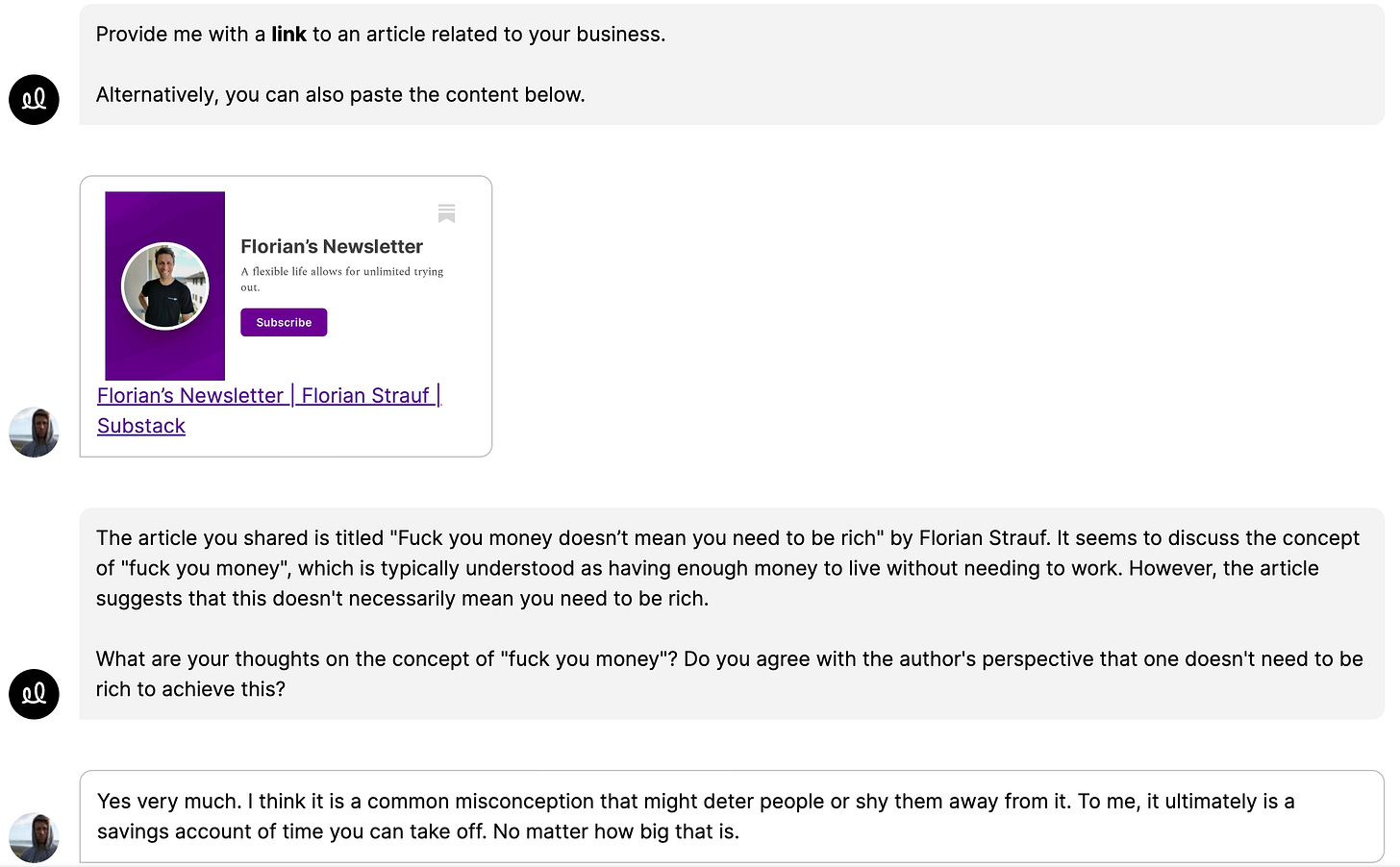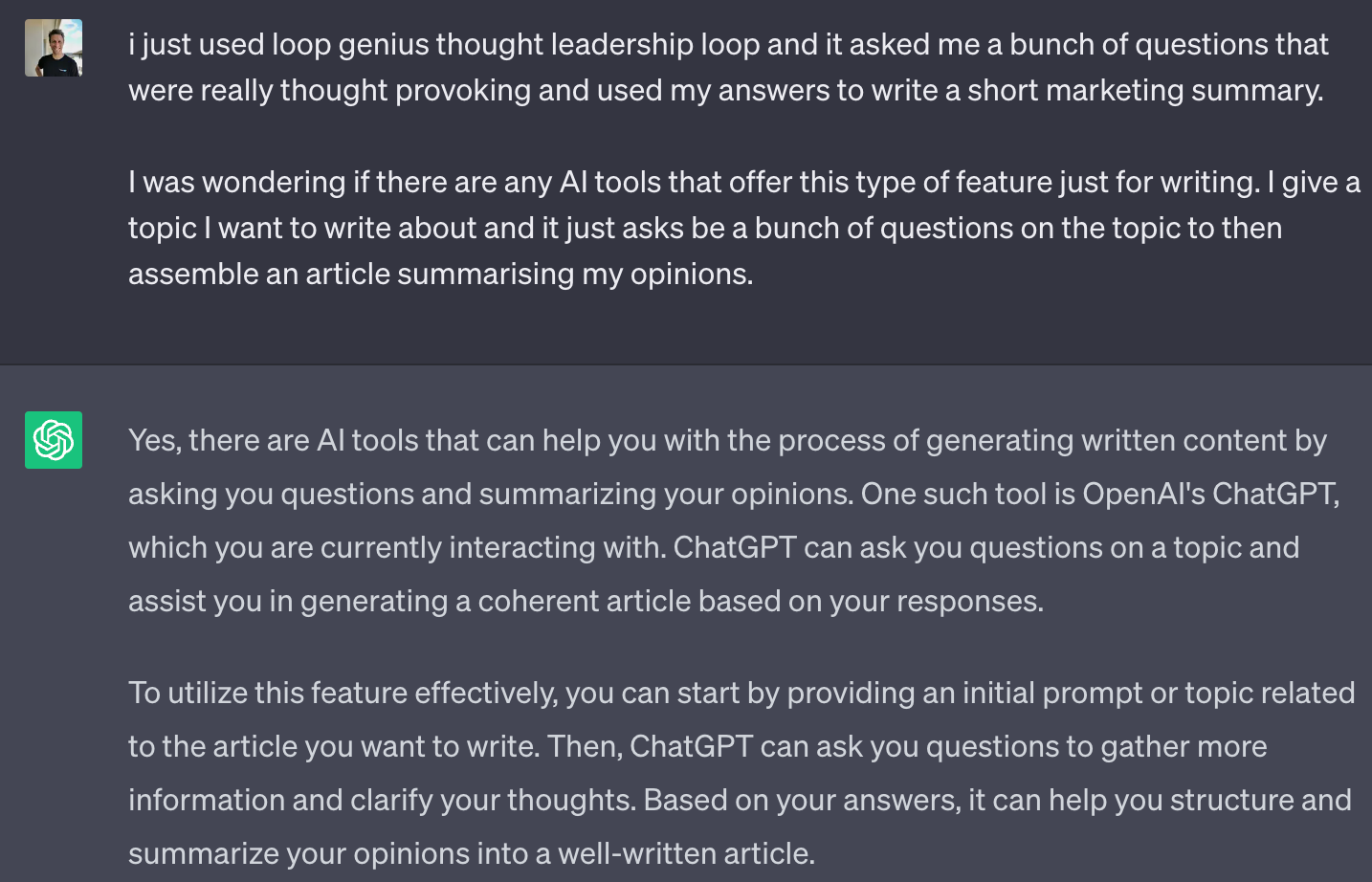I’m going down this rabbit hole of expense classification at the moment.
It’s one of the things that is really annoying about keeping track of your expenses, but it needs to be done.
The problem is that I can’t find a great solution that just plugs into my current Google sheet.
Anyway, I think there is a problem to be solved but before going any further, I want to test my hypothesis with a tool like Loopgenius.
I’m not an expert on this, but I’ve seen these landing pages before. Pretty much a dummy page, that pretends that you have a product (which you don’t) that lets you collect emails from people that are interested.
Yeah, all of you marketing folks know this, but I had no idea!
So here is my landing page for an Expense Classification Tool for Google Sheets:
On top of a landing page, Loopgenius also helps you to generate content you can use to market your landing page.
Here is where we get to AI-assisted writing
The thing that actually blew my mind with this was the thought leadership marketing campaign they generate for you.
Why?
Well, they use AI to ask you really good questions and then use your answers to assemble a marketing article.
Here’s how mine went:
And here is what it came up with:
Just finished reading an eye-opening article by Florian Strauf (https://florianstrauf.substack.com/p/fuck-you-money-doesnt-mean-you-need) that completely shifted my perspective on wealth and time.
We often equate wealth with richness, but what if we've been looking at it all wrong? What if "fuck you money" isn't about being rich, but about having a savings account of time? Time that you can take off whenever you want, time that you can invest in yourself, in your dreams, in your life.
This isn't just about financial freedom, it's about life freedom. It's about breaking free from the shackles of the 9-5 grind and the traditional work-retirement model. It's about taking control of your life and your time, because ultimately, that's what life is all about.
Yes, it requires discipline and planning. Yes, it's not easy. But once you've tasted the freedom that comes with having a "time savings account", trust me, you'll want more.
Imagine what we could achieve if we all started viewing our savings not just as money, but as time. More entrepreneurship, more innovation, more life.
So, let's start saving time, not just money. Because life is too short to be spent chained to a desk. #TimeIsMoney #FinancialFreedom #LifeFreedom #Entrepreneurship #Innovation #WorkLifeBalance
Now I think that’s a pretty cool summary.
The part I found most impressive is how it asked me those questions that were somewhat thought-provoking and teased out a new perspective.
Can ChatGPT do the same?
TL;DR: YES!
Ok, here’s a great topic:
And here are my answers:
The finished AI-assisted writing article:
Maximizing Energy: Tips for Eating Without Feeling Tired
Introduction: In our busy lives, feeling tired after meals can hamper productivity and overall well-being. However, with mindful eating habits and the right food choices, it's possible to maintain consistent energy levels throughout the day. Let's explore some insights on how to eat without feeling tired and sluggish.
Identify Fatigue Triggers: For many individuals, overeating, consuming excessive carbs, and indulging in sugar are common culprits behind post-meal fatigue. Personal experiences often reveal that carbs, particularly gluten, can lead to tiredness. By being aware of these triggers, you can make informed choices to minimize fatigue.
The Impact of Diet Choices: What we eat has a significant impact on our energy levels. Foods high in sugar can cause energy spikes followed by crashes, leaving you feeling drained. To maintain a balanced energy level, it's crucial to avoid excessive sugar intake throughout the day. Incorporating meat or animal protein into your diet can provide sustained energy for extended periods.
The Power of Red Meat: Red meat, known for its nutrient density, can play a beneficial role in combating post-meal fatigue. When opting for a diet that consists mostly of meat and vegetables, individuals often experience minimal sluggishness or brain fog. However, moderation is key, as excessive consumption of any food group can still lead to fatigue.
Mindful Eating Habits: Implementing mindful eating habits can significantly impact your energy levels. Consider delaying your first meal until around 10 or 11 am and opt for a light protein-based snack to kickstart your day. During lunch, prioritize meals with minimal carbs, and for dinner, indulge in a substantial gluten-free meal with limited carb intake. Save sugar consumption for post-exercise periods to prevent energy crashes.
The Role of Timing: Timing your meals strategically can help maintain a steady energy level. Skipping breakfast can keep your energy levels high in the morning while consuming multiple small meals throughout the day instead of three large ones can aid in digestion and sustained energy release.
Conclusion: Eating without feeling tired is achievable with conscious choices and mindful habits. By identifying fatigue triggers, such as overeating, excessive carbs, and sugar, and adapting your diet accordingly, you can maintain consistent energy levels throughout the day. Incorporating nutrient-dense foods like red meat and embracing mindful eating practices, such as strategic meal timing, can further enhance your energy and overall well-being. Remember, finding the right balance for your unique body and lifestyle is key to enjoying sustained energy and vitality.
Closing thoughts
Every day I’m learning how these new tools can make you better not just at coding and writing but also in the approach you take with it.
Anyway, I thought I’d share this with you and might even post the above as a separate article.










